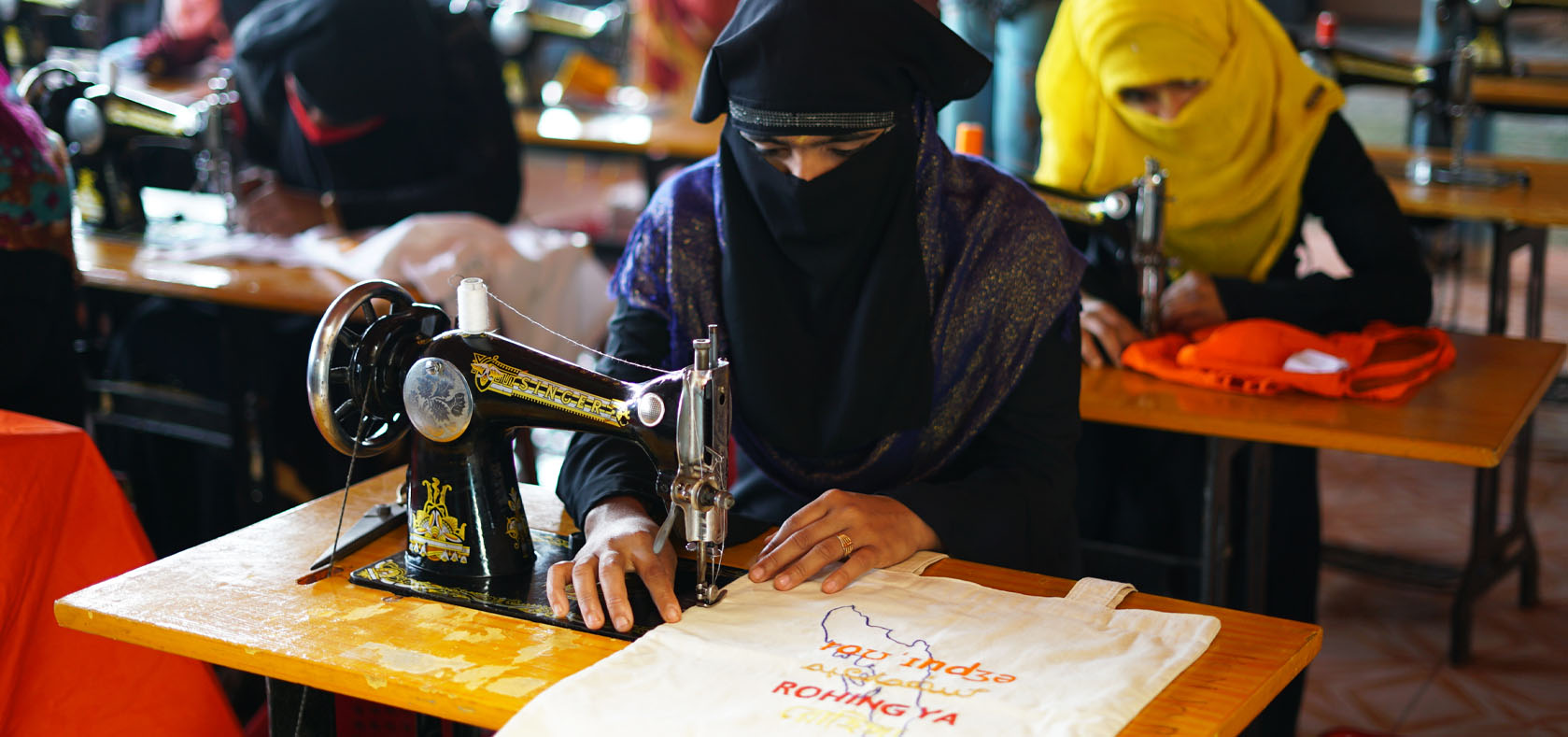Empowering women’s livelihoods and learning

UN Women gives education and livelihood training at its Multi-purpose Women’s Centres in Cox’s Bazar, both in the Rohingya refugee camps and the surrounding Bangladeshi community. Through our Second Chance Education and Learning Programme, women and adolescent girls learn basic literacy, numeracy and language skills so they can became self-reliant and participate in decision-making. They also receive training in skills including tailoring, sanitary napkin and mask making, block-printing, handicrafts and embroidery. This has enabled them to make income from making masks and sanitary napkins stitching nakshi kantha (hand-made blankets), and tailoring.
In Camp-5, UN Women set up a women’s market where Rohingya women and women from the surrounding community sell products including fresh vegetables, groceries, ready-made clothes, handbags, handicrafts, stationery and cosmetics, and services including beauty parlors, tailoring and tea stalls. Without the market, these women would not have the opportunity to go to a market or open a business in the camps. Women and girls are discriminated against in the highly conservative Rohingya community and their freedoms curbed.
Rohingya refugee women and girls can get sexual and reproductive health services from the midwives stationed at the Multi-purpose Women’s Centres in a partnership between UN Women and United Nations Population Fund.